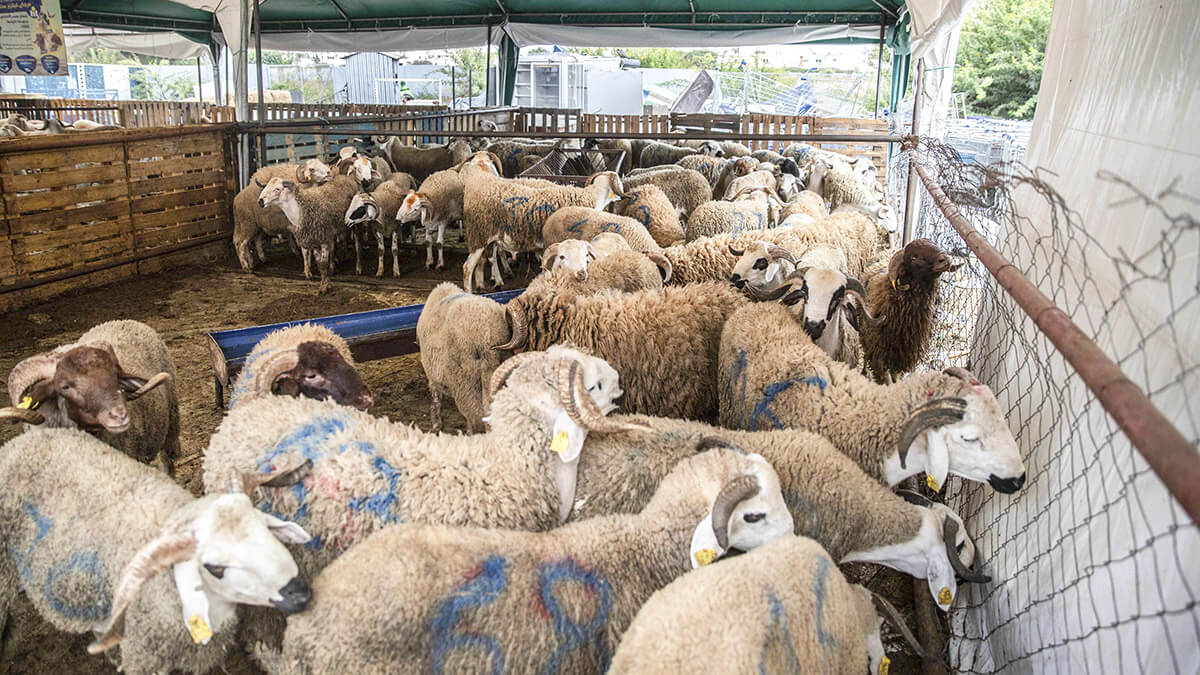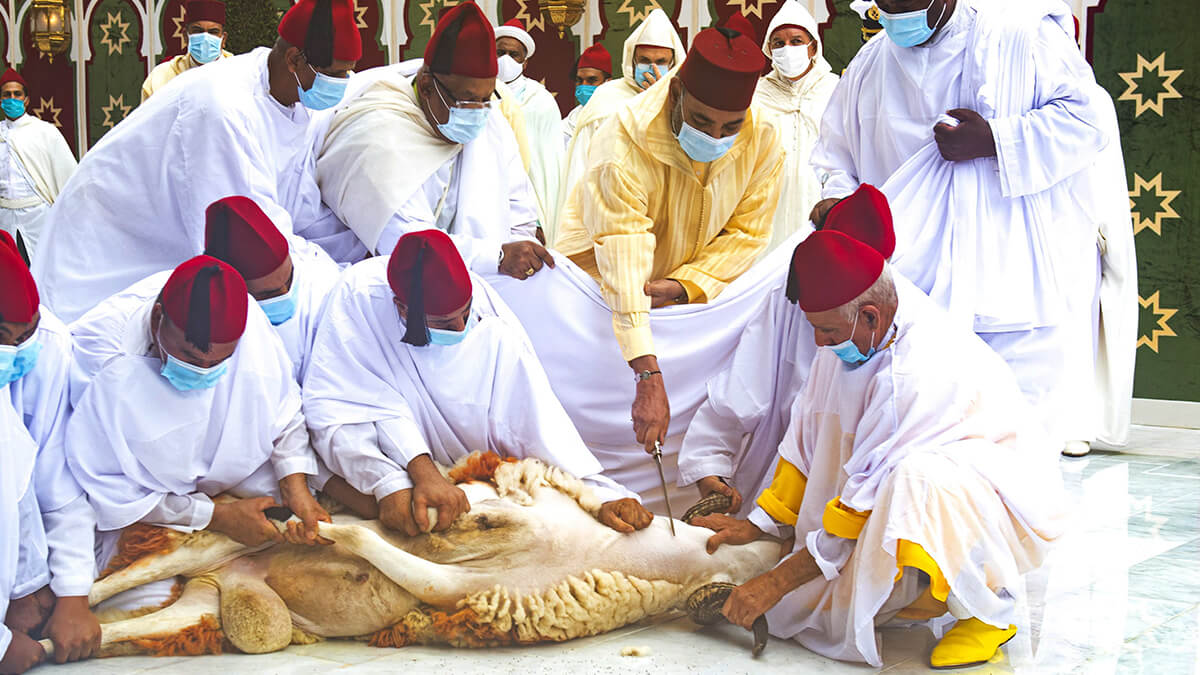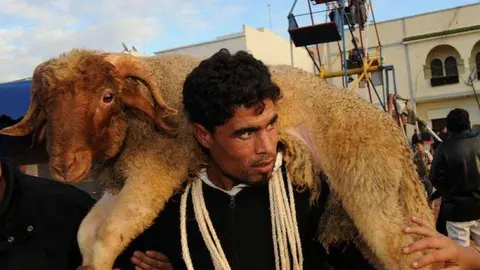Morocco prepares for the big Eid al-Adha festival

Eid al-Adha, also known as the big feast, is one of the most important festivals for Muslims. During this festival, a lamb, calf or ram is slaughtered and divided into thirds and distributed among family, friends, relatives and the poor. This tradition originated thousands of years ago when the prophet Abraham (Ibrahim to Muslims) offered his only son as a sacrifice to God, but whose life was spared and exchanged for a lamb to reward the prophet's obedience, so it is commonly known as the feast of the lamb or sacrifice.
The great feast is celebrated seventy days after the end of the month of Ramadan and marks the end of the annual pilgrimage to Mecca, which is one of the five pillars of Islam along with the profession of faith, praying five times a day, annual giving to the poor and fasting during Ramadan. Morocco will celebrate Eid al-Adha on Thursday 29 June, inaugurating a holy period marked by 'qurbani' (understood as self-sacrifice), prayer and charity towards the needy, thus recalling obedience to God.

The Islamic calendar follows the lunar cycle, which is made up of 12 months of 29 or 30 days, which is why Eid al-Adha is celebrated on a different date each year, although it is always on the tenth day of the month Dhu al-Hijjah, the last month of the calendar, which would coincide with 28 or 29 June 2023.
As this holiday is marked by the phases of the moon, the date is predicted and varies depending on the lunar position in different parts of the world. For this reason, Saudi Arabia will celebrate Eid al-Adha from 28 to 30 June. Although in some places it is celebrated from sunset on the tenth day to sunset on the eleventh day, the holiday may extend over three or four days.

Eid al-Adha is celebrated by all Muslims around the world and in many Arab countries, but preparations vary from nation to nation, which is also the case in Morocco.
Preparations for Eid al-Adha in Morocco usually begin a few days before the start of the festival and Moroccans spend time in advance cleaning their houses, buying fresh spices, vegetables and extra fruit, as souks and shops may be closed for a while, and buying new clothes for themselves and their families.
Many also visit the market to buy a sheep or goat for the traditional slaughter, which is a central part of the celebrations. The animals usually stay with each family for a few days before the slaughter, during which time members of each family feed and care for them.









